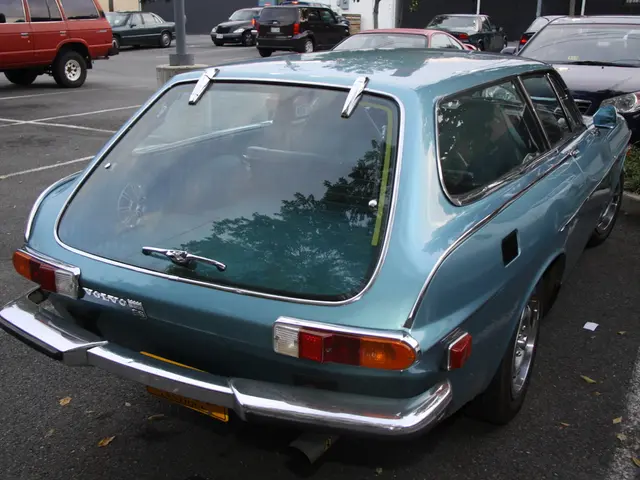Electric vehicles (EVs) saw a surge in sales in July, with Norway announcing a new record, with the Tesla Model Y emerging as the top-selling model.
In the bustling landscape of July 2025, Norway emerged as the global leader in electric vehicle (EV) adoption. The Scandinavian nation witnessed a near-total dominance of electric mobility, with battery-electric vehicles (BEVs) accounting for an unprecedented 97.2% of new car registrations[1][2][3].
Key factors contributing to Norway's leadership position include robust government incentives, extensive charging infrastructure, renewable energy supply, long-term strategic policies, and high market availability and consumer acceptance[2].
Government incentives such as tax exemptions, free parking, and access to bus lanes have made electric cars financially and practically attractive[2]. Norway boasts a well-distributed rapid charger network, with about one charger for every 95 EVs, improving convenience and reducing wait times[4]. The country's electricity primarily comes from hydropower, making EV use environmentally sustainable and reducing operational emissions[2].
Gradual policy implementation and public understanding have encouraged the transition to electric cars, even in a country wealthy in oil[2]. The mature EV market, with popular models driving sales, demonstrates the success of these policies[1][3].
Tesla's Model Y remained the best-selling individual vehicle in July 2025, with 715 units registered[1]. However, its market share dropped from over 25% in June to 7.5% in July, indicating stronger competition[1][3]. European and Chinese EV brands, such as Skoda, Volkswagen, and BYD, are gaining strength in the Norwegian market[6].
Skoda claimed the third spot among electric car brands in Norway for July 2025, with 574 units sold[1]. Volkswagen secured the top spot with 1,116 total registrations, followed closely by Volvo with 899 registrations[1]. MG secured the fourth spot with 380 registrations[1].
Interestingly, the Ford Explorer entered the top 10 for the first time, sharing the VW MEB platform[1]. Long lead times for certain models are still affecting deliveries in Norway[7].
For the first seven months of 2025, EVs held a 94% share of all new car sales in Norway, a significant increase from 85% during the same period in 2024[4]. When plug-in hybrids (PHEVs) are included, the total EV share in Norway reached 98.2% in July 2025[7].
In summary, Norway’s leadership in EV adoption is a testament to comprehensive policies, infrastructure, and renewable energy. The country continues to set global benchmarks, with over 94% of new cars being fully electric so far in 2025[1][4][5]. The competition among brands like Tesla, Skoda, Volkswagen, and BYD promises an exciting future for electric mobility in Norway.
In the ongoing revolution of electric vehicle (EV) dominance, technology integration is crucial as European and Chinese brands like Skoda, Volkswagen, and BYD, increasingly challenge Tesla's market position in Norway. Given Norway's lifestyle emphasis on sustainability and eco-friendly practices, the increasing popularity of EVs, such as the Tesla Model Y and Skoda's offerings, reflects a sustainable fusion of technology, cars, and the nation's values.








